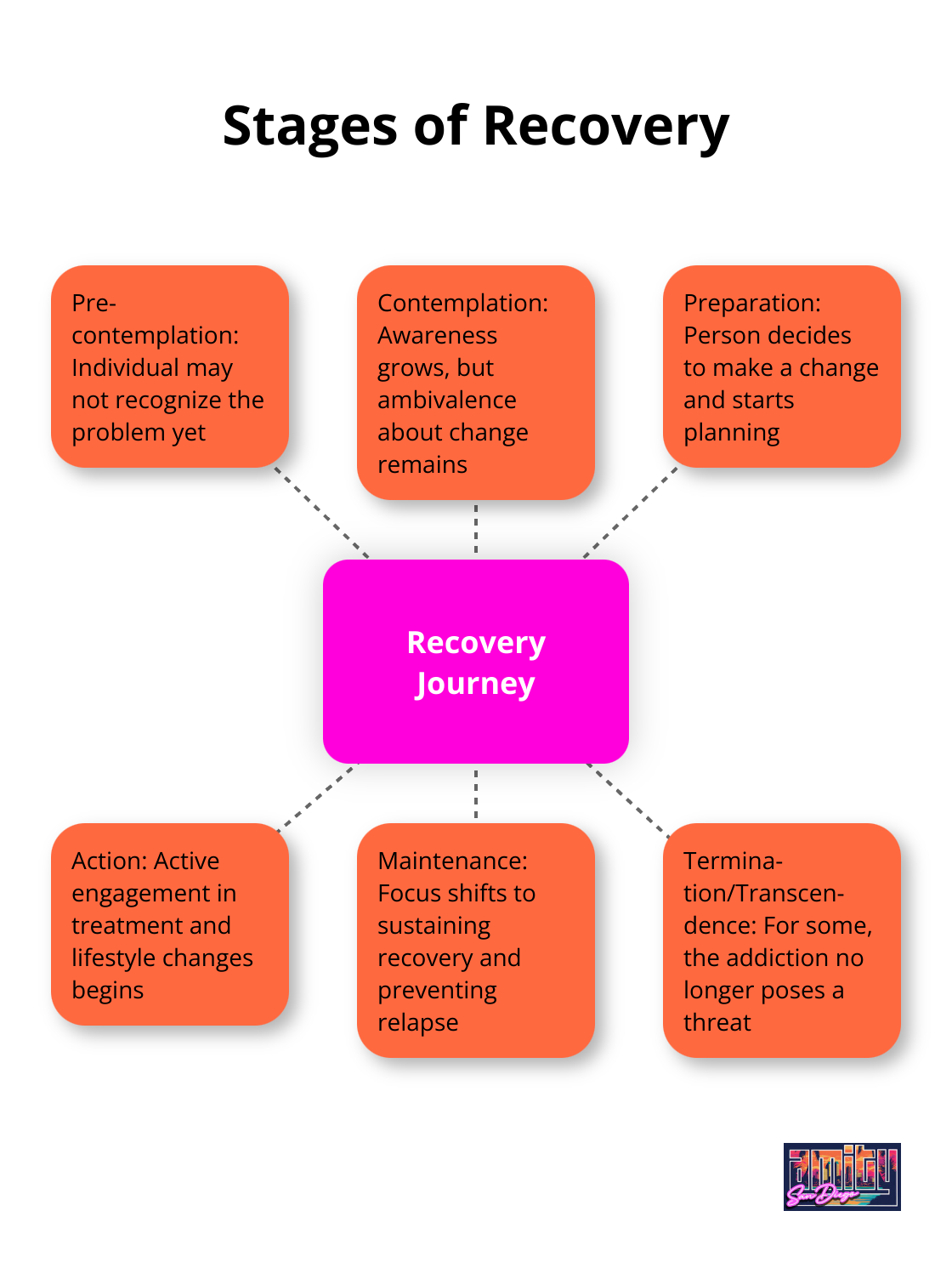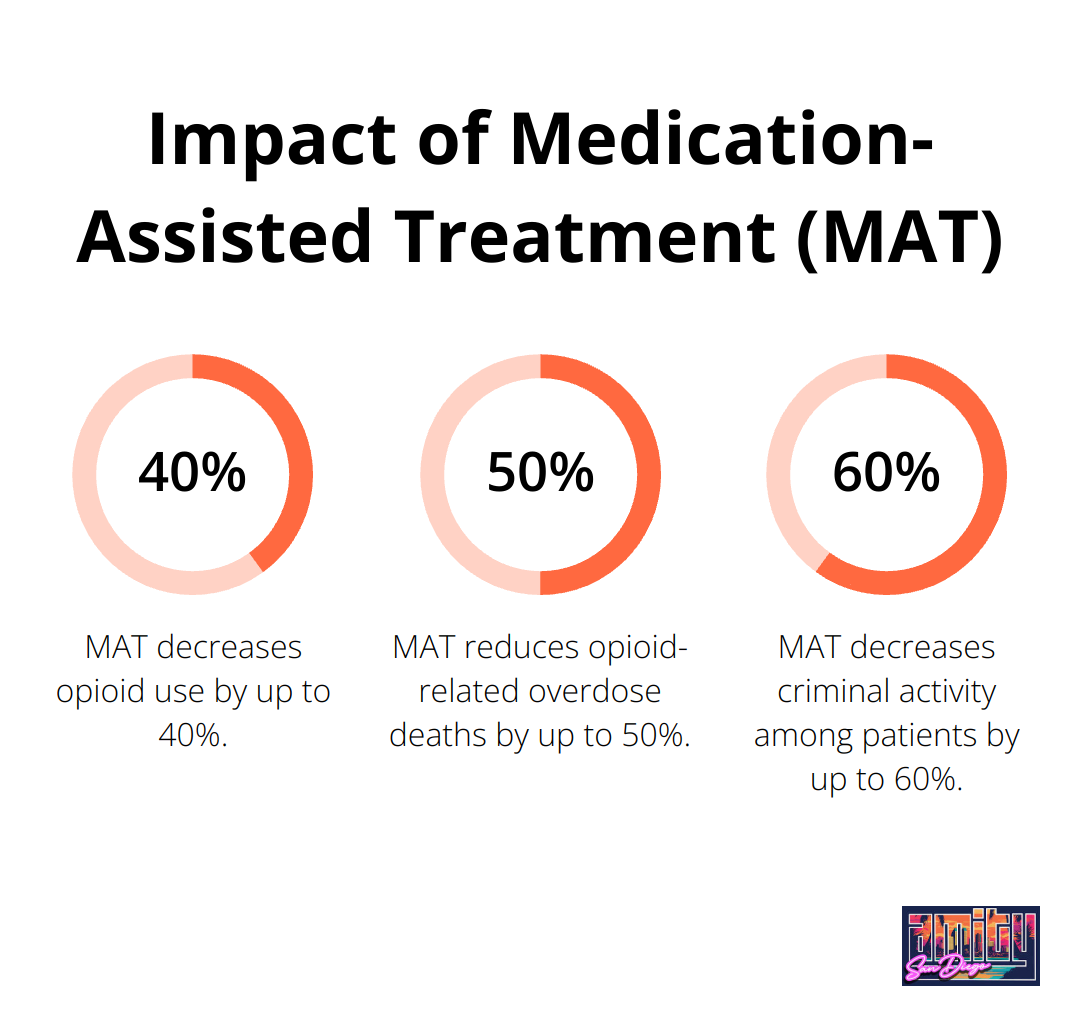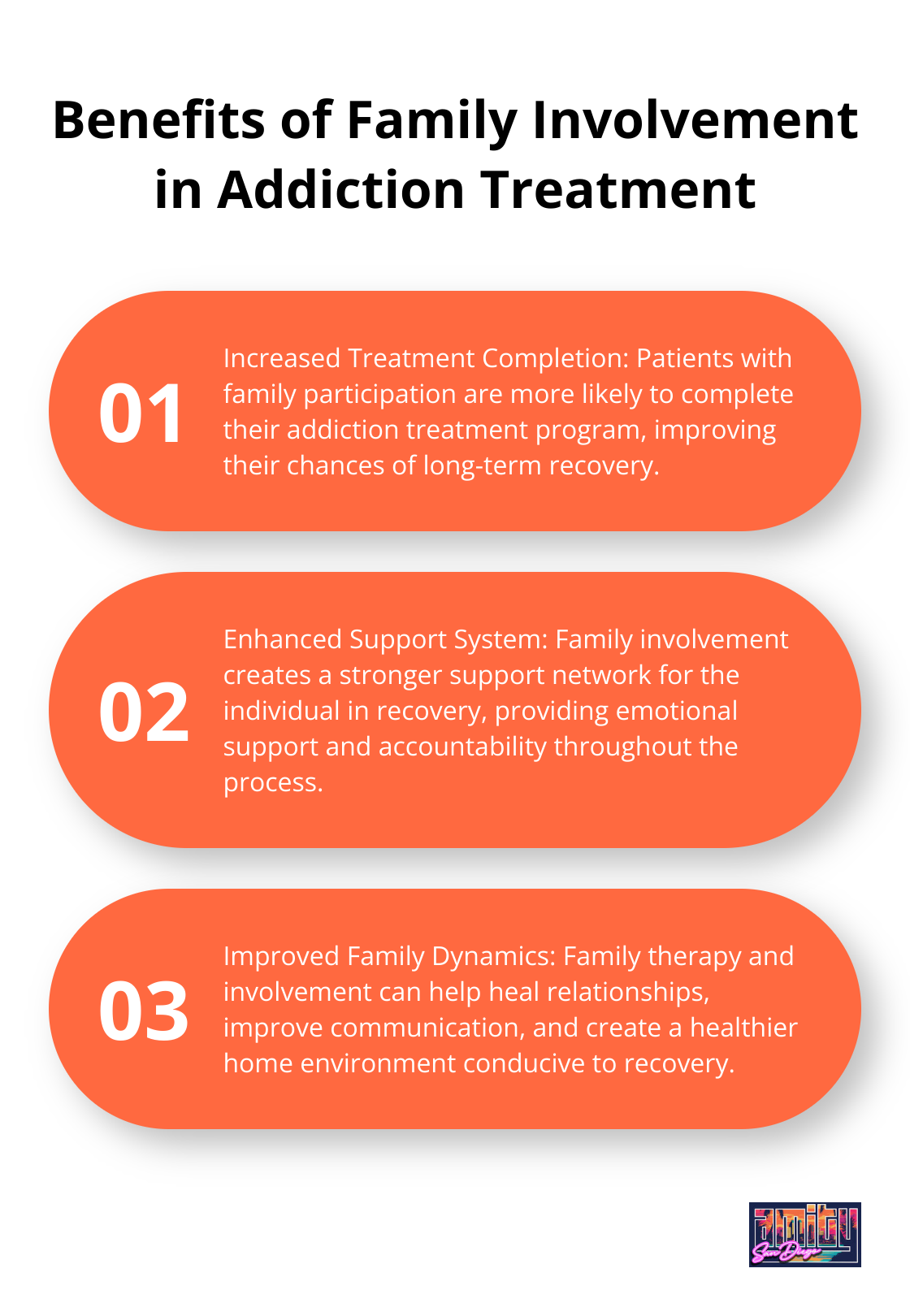At Amity San Diego, we understand that overcoming addiction is a journey filled with questions and uncertainties.
In this blog post, we’ll tackle some of the most common questions about addiction recovery, providing clear answers and practical guidance.
From understanding the nature of addiction to exploring treatment options and building support systems, we’ll cover key aspects of the recovery process.
Our goal is to empower you with knowledge and resources to overcome addiction and find your path to lasting recovery.
What Is Addiction and How Can We Overcome It?
The Science Behind Addiction
Addiction alters brain chemistry, particularly in important brain areas necessary for life-sustaining functions. It can drive compulsive drug use that marks addiction, creating an artificial sense of pleasure that becomes increasingly difficult to achieve without the substance.
The National Institute on Drug Abuse monitors the prevalence and trends regarding drug use in the United States. This highlights the widespread nature of addiction and the urgent need for effective treatment options.
Debunking Common Addiction Myths
Many misconceptions about addiction persist, hindering proper understanding and treatment. Let’s address some of these myths:
Myth: Addiction is a moral failing.Truth: Addiction is a medical condition (not a character flaw). It’s influenced by genetic, environmental, and developmental factors.
Myth: You can’t recover from addiction.Truth: Recovery is absolutely possible.
Myth: You have to hit “rock bottom” before getting help.Truth: Early intervention is key. The sooner treatment begins, the better the chances of successful recovery.
Stages of Recovery
Recovery is a journey, not a destination. Understanding the stages can help set realistic expectations:
- Pre-contemplation: The individual may not recognize the problem yet.
- Contemplation: Awareness grows, but ambivalence about change remains.
- Preparation: The person decides to make a change and starts planning.
- Action: Active engagement in treatment and lifestyle changes begins.
- Maintenance: Focus shifts to sustaining recovery and preventing relapse.
- Termination/Transcendence: For some, the addiction no longer poses a threat.
It’s important to note that these stages aren’t always linear. Relapse can occur, but it doesn’t mean failure. It’s an opportunity to reassess and strengthen the recovery plan.

Practical Steps for Recovery
- Seek professional help: A comprehensive assessment can determine the best treatment approach.
- Build a support network: Engage with support groups, family, and friends who encourage your recovery.
- Develop healthy coping mechanisms: Learn stress management techniques (like mindfulness or exercise).
- Address co-occurring mental health issues: Many people with addiction also struggle with conditions like depression or anxiety.
- Create a structured routine: Establish healthy habits and daily activities that support your recovery goals.
Recovery challenges individuals, but it’s absolutely achievable. With the right support, treatment, and commitment, people can overcome addiction and reclaim their lives. Now that we understand the nature of addiction and the recovery process, let’s explore the various treatment options available to those seeking help.
Effective Treatment Options for Addiction Recovery
At Amity San Diego, we know that finding the right treatment approach is essential for successful addiction recovery. Let’s explore some of the most effective options available today.
Evidence-Based Therapies
Cognitive Behavioral Therapy (CBT) stands out as a highly effective treatment for addiction. CBT helps individuals identify and change negative thought patterns and behaviors associated with substance use. Research indicates that both Brief Intervention (BI) and CBT can be effective in reducing the likelihood of relapse among drug users, with BI showing more effectiveness than CBT for relapse prevention.
Dialectical Behavior Therapy (DBT) is another powerful tool, especially for those dealing with co-occurring mental health issues. DBT focuses on mindfulness, emotion regulation, and interpersonal effectiveness.
Medication-Assisted Treatment (MAT)
MAT combines behavioral therapy with FDA-approved medications to treat substance use disorders. For opioid addiction, medications like methadone, buprenorphine, and naltrexone have shown remarkable results. The Substance Abuse and Mental Health Services Administration (SAMHSA) reports that MAT decreases opioid use, opioid-related overdose deaths, criminal activity, and infectious disease transmission.
For alcohol use disorder, medications such as naltrexone, acamprosate, and disulfiram can be game-changers. These medications work by reducing cravings, blocking the rewarding effects of alcohol, or causing unpleasant reactions when alcohol is consumed.

The Power of Support Groups
Support groups like Alcoholics Anonymous (AA) and Narcotics Anonymous (NA) play a vital role in long-term recovery. These groups provide a sense of community, accountability, and ongoing support that’s important for maintaining sobriety.
Specialized Treatment Centers
Addiction treatment San Diego facilities offer comprehensive, personalized care that addresses the unique needs of each individual. These centers often provide a combination of evidence-based therapies, medication management, and holistic approaches like nutrition counseling and mindfulness practices.
At Amity San Diego, we take pride in our multidisciplinary approach. Our team of board-certified physicians, licensed therapists, and addiction specialists work together to create tailored treatment plans. We offer a range of services including Partial Hospitalization Programs (PHP) and Intensive Outpatient Programs (IOP) to meet varying levels of care needs.
One key advantage of specialized centers is the focus on treating co-occurring mental health disorders alongside addiction. The National Institute on Drug Abuse reports that about half of individuals who experience a substance use disorder will also experience a mental illness at some point in their lives. Addressing both issues simultaneously significantly improves outcomes.
There’s no one-size-fits-all approach to addiction treatment. What works best often depends on individual factors such as the type of substance used, the severity of addiction, and any co-occurring mental health issues. It’s important to work with healthcare professionals to determine the most appropriate treatment plan for your specific situation.
Now that we’ve explored various treatment options, let’s turn our attention to another critical aspect of recovery: building a strong support system. This network of family, friends, and professionals can make a significant difference in your journey to lasting sobriety.
How to Build a Strong Support Network for Recovery
The Power of Family and Friends
Family involvement improves addiction treatment outcomes significantly. A study in the Journal of Substance Abuse Treatment found that patients with family participation were more likely to complete treatment. Here’s how to involve your loved ones:
- Educate them about addiction as a disease
- Invite them to family therapy sessions
- Encourage their participation in support groups (like Al-Anon)

Effective Communication Strategies
Open, honest communication forms the foundation of a strong support network. Here are some tips:
- Use “I” statements to express feelings without blame
- Practice active listening
- Set clear boundaries and expectations
Creating Healthy Relationships
Surrounding yourself with supportive people is essential for recovery. Here’s how:
- Attend 12-step meetings or other support groups regularly
- Join sober social clubs or activities
- Consider sober living arrangements post-treatment
Research shows that participating in a social network supportive of recovery is associated with completing treatment, greater abstinence, and greater quality of life.
Resources for Loved Ones
Family members need support too. Here are some valuable resources:
- SAMHSA’s Family Therapy Can Help guide
- National Association for Children of Addiction (NACoA)
- SMART Recovery Family & Friends program
Building a strong support network takes time and effort, but it’s a critical component of lasting recovery. We at Amity San Diego guide you and your loved ones every step of the way (through our comprehensive family programs and resources).
Final Thoughts
Addiction recovery challenges individuals, but it remains achievable. We at Amity San Diego offer personalized care that combines medical and psychological interventions to address addiction and co-occurring mental health issues. Our team provides compassionate, evidence-based care in a safe and restorative environment.
We offer a range of outpatient services, including Partial Hospitalization and Intensive Outpatient Programs, tailored to meet individual needs. Our approach helps patients overcome addiction recovery questions and build a strong foundation for lasting sobriety. We guide patients through every step of their recovery journey, from initial assessment to ongoing support.
Take the first step towards reclaiming your future today. Contact us for a confidential assessment and let us guide you on your path to healing. With the right support, treatment, and commitment, you can overcome addiction and build a fulfilling life in recovery (and inspire others to do the same).

